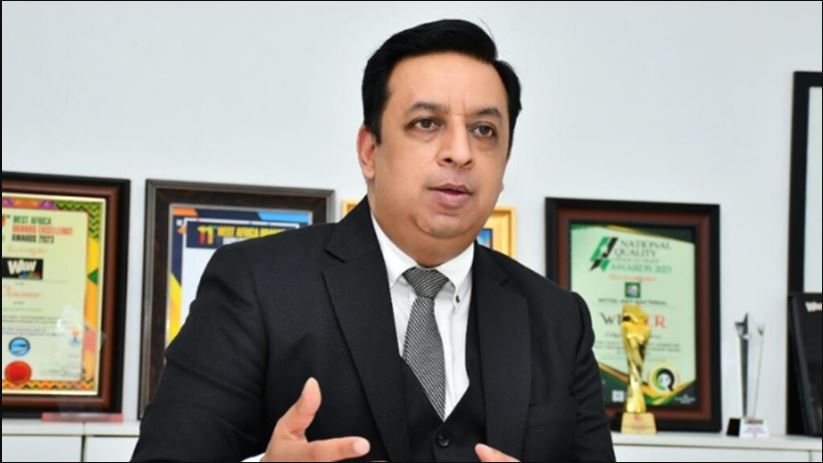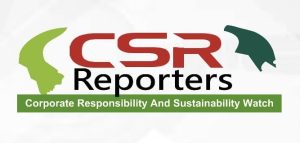
At Henkel, we have implemented many sustainability initiatives across Nigeria – Henkel Nigeria MD
In this chat, Henkel Nigeria MD, Rajat Kapur discusses the company’s extensive sustainability initiatives and their impact across Nigeria, highlighting Henkel’s commitment to environmental and social responsibility.
As a global brand, it is expected that sustainability initiatives are critical to your operations. Can you provide insights to sustainability efforts as a business?
We have many programmes that have societal impacts, which we have done as part of our sustainable initiatives, but I will talk on two.
The first one is our Forscherwelt. This programme fosters scientific exploration in children, currently running in Ibadan and Lagos with plans to expand to other cities. It is a programme, which is the initiative from our mother company in Germany, which has been brought to Nigeria as the first in Africa. It is directed towards school kids of young age, say from grade one to grade five. What is interesting there is that if you can get them to develop interest in science and technological related skills, you have built a future generation of value adding people and this we have paid attention to.
Another programme that we do is called the Peer-to-Peer and it is a unique local initiative that we started in Nigeria. When I came here, one of the things I heard a lot from my friends were concerns about the high unemployment rate in Nigeria.
We decided to do something about it. Back in 2017, we reached out to about six unemployed youths, and we gave them some basic training on how to manage a small business. They were taught mathematics and bookkeeping. After the training, we invested in these six people and then gave them free products to sell, and we set up a mobile shop for them at no cost to them. The whole premise was to train them, invest in them and see what happens.
We got very good results from the first experiment. We have 250 unemployed youths who are now working as retail entrepreneurs, having their own shops, and they are not Henkel employees.
The first person we trained now has 15 people working for him today. He was unemployed before we trained him. There are so many others that we can talk about; some have five, while others have seven working under them. But these were unemployed people who did not know where the next meal was coming from, and this is something that we tried out, and it has paid off.
Nigeria’s economy is facing some challenges including volatility of the naira, inflation and many others, how are these affecting Henkel’s operations?
There is no disputing the fact that it is tough at this time and everybody in Nigeria knows that. It is tough not because of the naira devaluation, but because of the volatility, which is not enabling easy planning. What is important to know is the fact that we are a country of over 200 million people with a large potential and growth opportunities. While the government tries to fix the volatility, that opportunity still exists. To navigate these challenges, the best is to look at two baskets. The first basket is the cost structure, and it is about how to be efficient in the use of energy, when it comes to usage of materials and when it comes to mode of operations. It is about achieving a sustainable mode of operation that is efficient, without reducing the quality of the products. This again involves using recycling and sustainable formulas, which can give better performance on products delivered to consumers. Recycling reduces cost structure and sustains efficiency.
The second basket is meeting the needs of consumers, by dividing Nigerians into two, which are the premium consumers and the mass consumers. For the mass consumers, you need to give them the right offerings, efficiently and at a reasonable cost level that they can carry, while for premium consumers, you need to add other things they need on top and charge the extra to meet the cost. Diversification of portfolio, looking at the Nigerian landscape is a good way of tackling volatility in the market. Is it going to be 100 percent easy, no?, but keeping at the back of your mind that you have over 200 million consumers that make it easier for you to survive the volatility while you wait for that better time to come.
With your success stories in Nigeria, are you looking at expanding to other African countries?
We came to Nigeria in 2016 and the rationale behind our coming was to use the strongest place in Africa as the base and then launch to the West Africa and Sub-Sahara Africa. Therefore, we want to continue on the vision by using Nigeria as the base for our operations to expand to other ECOWAS countries, but first to West African countries like Ghana, Ivory Coast, Burkina-Faso, and also Cameroun, which is close by.
Already, we have products that are going into Chad, Ghana and hopefully in the coming weeks, we will firm up more agreements with partners. This will not only help us to increase efficiency in our manufacturing operations on ground, but also help us to get foreign exchange into Nigeria. Are we there 100 percent, the answer is no? But, are we going there and our plans moving in the right direction, yes? As entrepreneurs, we are formalising and making partnerships in the relevant countries for the expansion and establishment of formal structures .
You no doubt have set timelines for your operations, have you met the projections?
The timeline we set for our self was 2022 before COVID came, but despite that, our manufacturing capacity was still over 200 percent. However, recent volatilities have impacted us to some levels, and there has been some delays in the past years. Before 2022, we were pretty much in line with our plans, particularly the expansion given the measures we had put in place. There has been some setbacks in the past years, but I am optimistic that given the measures that the government is putting in place, we will bounce back.
In meeting the needs of the consumers, especially in a country with huge youth demography, what strategies are you implementing to meet their expectations?
The only way to do this is to stay close to the customers, invest on their expectations through research and human capital development. We keep on looking at the trends, keep adapting and focus on innovations that meet the needs of the consumers. Now, we are in the process of bringing on the ground products used by Nigerian women, which we had been importing from other places, but right now it is going to come directly from Henkel and these include beauty and hair care needs. Over the last years, we have launched new technologies that produce a particular detergent that does not only remove dirty, but also kill bacteria in the cloth. Then, we went ahead to say when people wash during raining season it brings smell, so we launched a new detergent with deodorant that takes care of that. Therefore, we keep doing this kind of innovations. One is being close to the customers and meeting their needs and expectations. We have a big global portfolio, which we can bring to Nigeria, but then, we have to make it have local relevance and that we have continued to do as we penetrate the market.
Human resources is critical to business successes, how have you been getting the right workforce to drive your business operations?
There is availability of resources on the ground, so we do many trainings both in house and vocational to enable them adapt. We first take people in the factories level and over a period, we absorb them into the organisation. The challenge of finding the right talent is similar to what you find in any other country across the world. I think the advantage we have is that we have a legacy of knowing how to build from what we find on the ground for the organisation. Whether it is in Germany or any part of the 73 plus countries where we are operating, we have a systematic way of building local talent on the ground.
Looking ahead, what is your vision for Henkel as it relates to the Nigerian market?
Our purpose is to work for the good of future generation, which is what we believe in. It is critical to know that we are not thinking the short run, but the long run and the future generation. What is very important for us is to first, have everything sustainable, sustainable partners, sustainable manufacturing footprint, efficiency in energy utilisation and in line with what we want to achieve, which must be good for the future generation. In the end, it should not be a business that will die after ten or twenty years, but one that has been built for sustainability and is capable of living up to 100, to 150 years. So, having the right people, the right processes and the right manufacturing footprint is key to our vision. This is Henkel purpose, which is doing new things in different ways for the good of the incoming generation. This is what we want keep doing, by continually bringing our portfolios that appeal to the changing needs of Nigerians, and to make sure the company is able to deliver sustainable profits irrespective of challenges and volatility in the environment.









